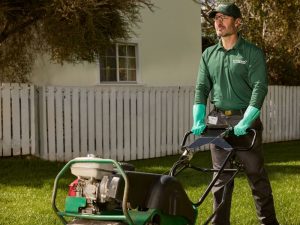The path to recovery from addiction is rarely linear; it’s often fraught with challenges, setbacks, and moments of intense vulnerability. For individuals navigating this journey, the presence of a compassionate and supportive guide can make all the difference. This is where a sober companion steps in, offering not just companionship but a lifeline to sobriety.
If you’re drawn to a career where you can empower others to reclaim their lives from addiction, becoming a sober companion might be your calling. This path demands more than just good intentions; it requires a unique blend of empathy, resilience, and specialized knowledge. This comprehensive guide will delve into the multifaceted role of a sober companion, outlining the necessary steps to embark on this fulfilling career path.
Understanding the Role of a Sober Companion
Before you delve into the intricacies of how do you become a sober companion, it’s crucial to grasp the profound impact this role has on individuals in recovery. A sober companion is not merely a friend or a caregiver; they are a source of strength, accountability, and unwavering support during a vulnerable and challenging phase of life.
Imagine a person fresh out of rehab, stepping back into a world filled with triggers and temptations. The fear of relapse can be paralyzing. This is where a sober companion becomes their anchor, providing:
- 24/7 Support and Structure: Sober companions often live with their clients, offering round-the-clock support and ensuring a structured environment conducive to recovery.
- Relapse Prevention: They help clients identify potential triggers, develop coping mechanisms, and navigate high-risk situations, minimizing the risk of relapse.
- Emotional Support and Motivation: Recovery is an emotional rollercoaster. Sober companions provide a listening ear, offer encouragement, and celebrate milestones, fostering a positive and hopeful outlook.
- Life Skills Development: Addiction often disrupts essential life skills. Sober companions assist clients in rebuilding these skills, from managing finances and maintaining a household to developing healthy communication patterns and social skills.
The Difference Between a Sober Companion and a Sponsor:

While both roles are crucial in recovery, it’s important to distinguish between a sober companion and a sponsor in a 12-step program:
- Scope: Sober companions offer comprehensive, individualized support encompassing various aspects of life, while sponsors primarily focus on guiding individuals through the 12 steps.
- Professionalism: Sober companionship is a paid profession requiring specific training and certifications, while sponsorship is a voluntary role within a 12-step framework.
- Duration: Sober companions typically work with clients for a defined period, while the sponsor-sponsee relationship can last for years.
Essential Qualities of a Sober Companion
Becoming a successful sober companion demands more than just a desire to help; it requires a unique blend of personal qualities and professional skills.
Compassion and Empathy
At the heart of effective sober companionship lies the ability to genuinely connect with clients on a human level. This requires:
- Empathy: The ability to step into your client’s shoes, understanding their struggles, fears, and triumphs without judgment.
- Patience: Recovery is not linear; setbacks are part of the process. Patience allows you to remain calm and supportive during challenging moments.
- Non-Judgmental Attitude: Creating a safe space for clients to be vulnerable requires approaching their experiences without judgment, shame, or criticism.
Resilience and Boundaries
The journey of supporting someone through recovery can be emotionally demanding. To thrive in this role, you need:
- Emotional Resilience: The ability to navigate challenging situations, manage your own emotions effectively, and maintain a positive outlook.
- Strong Boundaries: Maintaining clear professional boundaries is crucial to prevent compassion fatigue and ensure a healthy client-companion relationship.
- Self-Awareness: Understanding your own triggers, limitations, and biases is essential to provide unbiased and effective support.
Communication and Problem-Solving Skills
Effective communication is the cornerstone of successful sober companionship. This includes:
- Active Listening: Truly hearing and understanding your client’s needs, concerns, and perspectives.
- Clear Communication: Conveying expectations, boundaries, and feedback in a clear, concise, and respectful manner.
- Problem-Solving Abilities: Collaborating with clients to identify potential challenges, develop coping strategies, and navigate difficult situations.
Educational Background and Training Requirements
While there are no strict educational prerequisites to become a sober companion, a strong foundation in relevant fields can significantly enhance your skills and credibility.
Relevant Educational Backgrounds:
- Psychology: A degree in psychology provides a deep understanding of human behavior, addiction, and recovery processes.
- Social Work: Social work programs equip you with skills in counseling, case management, and navigating social service systems, all valuable assets in sober companionship.
- Counseling: A counseling degree hones your skills in active listening, communication, and therapeutic techniques essential for supporting clients.
Specialized Training Programs:
Several organizations offer specialized training programs tailored specifically for aspiring sober companions. These programs typically cover:
- Addiction and Recovery: In-depth knowledge of addiction, its impact on the brain and behavior, and various recovery models.
- Relapse Prevention: Evidence-based strategies and techniques to identify triggers, manage cravings, and prevent relapse.
- Crisis Intervention: Skills to effectively manage crisis situations, de-escalate conflicts, and ensure client safety.
- Ethical Considerations: Understanding the ethical principles and legal boundaries within the field of sober companionship.
Gaining Practical Experience:
- Volunteering: Volunteering at addiction treatment centers, recovery homes, or support groups provides valuable firsthand experience and insights into the recovery process.
- Mentorship: Shadowing experienced sober companions allows you to observe their approach, learn practical skills, and gain confidence in real-world settings.
Certifications Relevant to Sober Companionship
While not always mandatory, obtaining relevant certifications can significantly bolster your credibility, demonstrate your commitment to the field, and enhance your employment prospects.
Certified Sober Companion (CSC):
Offered by reputable organizations like the National Association of Alcohol and Drug Addiction Counselors (NAADAC), the CSC certification validates your knowledge and skills in providing sober companionship services.
Certified Recovery Coach (CARC):
The CARC certification, offered by organizations like the International Certification & Reciprocity Consortium (IC&RC), focuses on guiding and supporting individuals in their recovery journey.
Other Relevant Certifications:
- Certified Peer Recovery Specialist (CPRSA): Demonstrates your experience and expertise in supporting individuals in recovery through shared lived experiences.
- First Aid and CPR Certification: Essential for handling potential emergencies and ensuring client safety.
Developing Skills for Effective Support
Beyond formal education and certifications, mastering specific skills is crucial for providing effective and compassionate support as a sober companion.
Compassion and Empathy
- Active Listening: Go beyond just hearing the words; pay attention to your client’s body language, tone of voice, and unspoken emotions. Reflect back what you hear to ensure understanding and demonstrate empathy.
- Validating Emotions: Let your clients know that their feelings are valid, even if you don’t fully understand them. Avoid dismissing or minimizing their experiences.
- Setting Boundaries with Compassion: While empathy is crucial, maintaining professional boundaries is equally important. Clearly communicate your role, limitations, and availability to prevent burnout and maintain a healthy client-companion relationship.
Active Listening Techniques
- Reflective Listening: Paraphrase and reflect back what your client is saying to ensure understanding and demonstrate that you’re actively listening.
- Open-Ended Questions: Ask open-ended questions that encourage your client to elaborate on their thoughts and feelings, fostering deeper communication.
- Nonverbal Cues: Pay attention to your own nonverbal cues, such as maintaining eye contact, nodding, and using open body language, to convey attentiveness and empathy.
Building Trust with Clients

- Confidentiality: Assure your clients that their information is confidential, creating a safe space for them to be vulnerable and open.
- Reliability: Be punctual, follow through on commitments, and be present both physically and emotionally. Consistency builds trust and fosters a sense of security.
- Transparency: Be open and honest in your communication. If you don’t have an answer, be willing to say so and seek it together.
Conclusion
Choosing to become a sober companion is a calling that demands compassion, resilience, and an unwavering commitment to empowering others to reclaim their lives from addiction. By embracing the principles outlined in this guide, you can embark on this fulfilling path and make a tangible difference in the lives of those seeking a brighter, healthier future. Remember, the journey of becoming a sober companion is an ongoing process of learning, growth, and dedication to making a positive impact on the world, one individual at a time.
ALSO READ: How to Work for Insurance Companies as a Contractor
FAQs
Salaries can vary widely based on location, experience, and certifications. On average, sober companions can earn between $50,000 and $100,000 per year.
While there are no specific age restrictions, most states require you to be at least 18 years old to enter into contracts and handle client finances.
While personal experience with addiction can provide valuable insights, it is not a requirement to become a sober companion.




